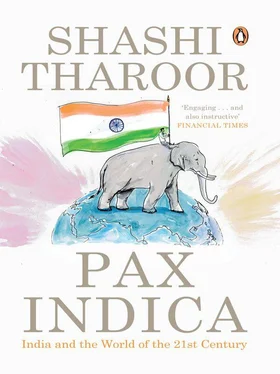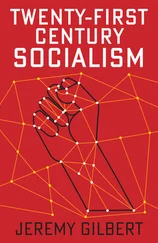As an Indian minister of state lobbying in Addis Ababa for Security Council reform, I pointed out somewhat mischievously that ‘Ezulweni’ meant ‘Paradise’, but that, after years of insisting upon, and failing to obtain, Paradise, it was necessary for African countries to settle for what could be achieved on earth. Africa’s naysayers also know that insisting on a consensus decision makes it difficult for the majority favouring reform to move the process forward. After years of accepting this approach, countries like South Africa appear to be challenging the time-honoured emphasis on consensus. If the AU were to agree to a free vote in the General Assembly, the prospects of a reform resolution attracting the necessary 129 votes would brighten immeasurably.
As with most global issues, the key to breaking the logjam lies in Washington. Most of the naysayers are US allies who have been given a free hand by Washington’s own lack of enthusiasm for reform. If a new (or re-elected) US administration could be persuaded that it is in America’s self-interest to maintain a revitalized United Nations, credible enough for its support to be valuable to the United States and legitimate enough to be a bulwark of world order in the imminent future when the United States is no longer the world’s only superpower, Washington could bring enough countries in its wake to transform the debate.
That is a task that the Security Council ‘aspirants’—and notably the government of a transforming India now entering into a strategic partnership with Washington — are well positioned to perform.
As someone who has devoted three decades of his life to multilateral cooperation at the United Nations, my big fear remains that if reform does not come, many countries will despair and lose interest in the working of the world body. Alternative structures of world governance could emerge that would in the end undermine the one truly effective universal organization the world has built up since 1945—the United Nations.
‘Reform or die’ is a cliché that has been inflicted on many institutions. For the UN, at this time and on this issue, the hoary phrase has the additional merit of being true.

But the questions of world peace and security debated and decided at the Security Council do not constitute the whole story of the UN. As global governance has evolved, the UN system has become the port of call for innumerable ‘problems without passports’—problems that cross all frontiers uninvited, problems of the proliferation of weapons of mass destruction, of the degradation of our common environment, of contagious disease and chronic starvation, of human rights and human wrongs, of mass illiteracy and massive displacement, and the governance of the ‘global commons’ (on which more later). Such problems also require solutions that cross all frontiers, since no one country or group of countries can solve them alone.
Global governance is not exactly the most precise concept dreamed up by political scientists today. It is used to describe the processes and institutions by which the world is governed, and it was always intended to be an amorphous idea, since there is no such thing as a global government to provide such governance. ‘Global governance’ is a term that tries to impose a sense of order, real or imagined, on a world without an organized system of government. It has four essential aspects.
The first is history. The principal institutions of global governance today are those that emerged after the disasters of the first half of the twentieth century. In the first half of the twentieth century, the world saw two world wars, countless civil wars, mass expulsions of populations and the horrors of the Holocaust and Hiroshima. Then things changed. In and after 1945, a group of far-sighted leaders were determined to make the second half of the twentieth century different from the first. So they drew up rules to govern international behaviour, and they founded institutions in which different nations could cooperate for the common good. That was the idea of ‘global governance’—to foster international cooperation, to elaborate consensual global norms and to establish predictable, universally applicable rules, to the benefit of all.
The keystone of the arch was the United Nations — the institution seen by world leaders like former US president Franklin Delano Roosevelt and his successor Harry Truman as the only possible alternative to the disastrous experiences of the first half of the century. As Roosevelt stated in his historic speech to the two US Houses of Congress after the Yalta conference, the UN would be the alternative to the military alliances, balance-of-power politics and all the arrangements that had led to war so often in the past. The UN stood for a world in which people of different nations and cultures looked on each other not as subjects of fear and suspicion, but as potential partners, able to exchange goods and ideas to their mutual benefit.
Not that Paradise descended on earth in 1945. We all know that tyranny and warfare continued, and that billions of people still live in extreme and degrading poverty. But the overall record of the second half of the twentieth century is one of amazing advances. A third world war did not occur. The world economy expanded as never before. There was astonishing technological progress. Many in the industrialized world now enjoy a level of prosperity, and have access to a range of experiences, that their grandparents could scarcely have dreamed of; and even in the developing world, there has been spectacular economic growth. Child mortality has been reduced. Literacy has spread. The peoples of the developing world threw off the yoke of colonialism, and those of the Soviet bloc won political freedom. Democracy and human rights are not yet universal, but they are now much more the norm than the exception. The existence of the global system devised in 1945 helped make all of this possible.
These developments result at least partly from the second important feature of global governance — the emergence in the last six and a half decades of institutions, principles and processes that reflect this new reality. Global institutions benefit from the legitimacy that comes from their universality. Since all countries belong to it, the UN enjoys a standing in the eyes of the world that gives its collective actions and decisions a legitimacy that no individual government enjoys beyond its own borders. But the institutions of global governance have been expanding beyond the UN itself. There are selective intergovernmental mechanisms like the G8, military alliances like NATO, subregional groupings like the Economic Community of West African States, one-issue alliances like the Nuclear Suppliers’ Group. Writers connect under International PEN, soccer players in FIFA, athletes under the International Olympic Committee, mayors in the World Organization of United Cities and Local Governments. Bankers listen to the Bank of International Settlements and businessmen to the International Accounting Standards Board. The process of regulating human activity above and beyond national boundaries has never been more widespread.
In parallel is emerging the third aspect of global governance today, the idea that there are universally applicable norms that underpin our notion of world order and therefore of global governance. Sovereignty is one, especially in a world where the majority of states have won their sovereignty after long years of colonial rule. Emerging from the principle of sovereignty is the principle of non-interference in other countries’ internal affairs, equality and mutual benefit, non-aggression and coexistence across different political systems — the very principles first articulated by India’s Jawaharlal Nehru in his famous Panchsheel doctrine with the People’s Republic of China in 1954. At the same time, there has evolved a new set of global norms of governance that complement and expand (and, in some cases, affect) these principles, including respect for human rights, transparency and accountability, rule of law, equitable development based on economic freedom and, at least to most nations, political democracy. These are seen as desirable for all countries to aspire to, and while no one suggests that they can or should be imposed on any nation, fulfilling them is seen as admirable by most of the world and broadly accepted as evidence of successful governance.
Читать дальше













